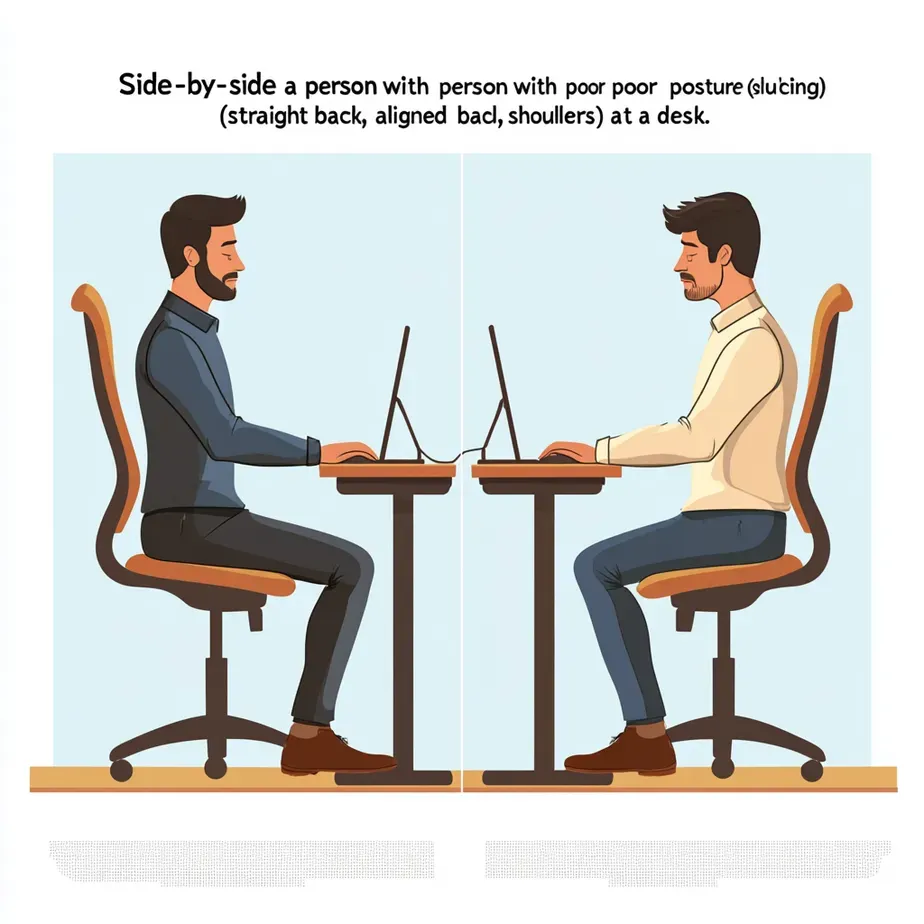Tips for Preventing Back Pain Flare-Ups in Your Daily Life
📝 Table of Contents:
- Introduction: Why Preventing Back Pain Flare-Ups is Important
- Essential Daily Tips for Back Pain Prevention
- Improve Your Posture
- Stay Active with Low-Impact Exercise
- Lift Properly to Avoid Strain
- Manage Your Weight for Spinal Health
- Practice Stress-Reducing Techniques
- Take Control of Your Back Health
- Find Lasting Relief with Back Pain Breakthrough
Dealing with back pain flare-ups can be incredibly frustrating, especially when they interfere with your daily activities.
Whether managing chronic back pain or experiencing occasional discomfort, it's important to prevent flare-ups and keep your back healthy.
In this blog post, we'll share some effective tips for maintaining spinal health and avoiding those painful episodes.
1. Improve Your Posture

Did you know that poor posture is one of the leading causes of back pain? Slouching or sitting for long periods with improper alignment can put a lot of strain on your spine.
To combat this, make a conscious effort to sit and stand up straight, keeping your shoulders back and your spine properly aligned.
If you work at a desk or spend hours sitting, invest in ergonomic chairs and adjust your workspace to better support your posture.
✅ Tip: Practice mindful posture throughout the day, whether you're sitting, standing, or walking.
2. Stay Active with Low-Impact Exercise
Exercise is essential for keeping your back strong and flexible, but not all exercises are suitable for those with chronic back pain.
Focus on low-impact activities such as walking, swimming, or yoga. These activities help strengthen your core muscles, improve spinal health, and increase flexibility without putting too much strain on your back.
✅ Tip: Aim for at least 30 minutes of light exercise most days of the week to keep your back in top shape.
3. Lift Properly
Improper lifting is a major cause of back pain flare-ups. Whether you're picking up groceries, furniture, or other objects, always remember to bend your knees and keep your back straight while lifting.
Avoid twisting your spine, as this can lead to injury. If the object is heavy, ask for help or use a lifting aid to reduce the strain on your back.
✅ Tip: Think of your legs as the power source when lifting, not your back.
4. Manage Your Weight
Carrying excess weight can increase the pressure on your spine, contributing to back pain.
To prevent flare-ups, work on maintaining a healthy weight by eating a balanced diet and staying active. Not only will this help prevent back pain, but it will also improve your overall well-being.
✅ Tip: Even losing a small amount of weight can significantly reduce stress on your back.
5. Practice Stress-Reducing Techniques
Stress is a major contributor to muscle tension and can exacerbate back pain. To avoid flare-ups, incorporate stress-reducing activities into your routine, such as meditation, deep breathing exercises, or gentle stretching.
These activities can help calm your mind and body, reducing tension in your back muscles and preventing pain from worsening.
✅ Tip: Take breaks throughout the day to relax and recharge, especially if you feel stressed or overwhelmed.
By following these simple yet effective tips, you can take control of your back health and significantly reduce the risk of flare-ups. Remember, staying proactive and incorporating healthy habits into your daily life is key to maintaining a pain-free back.
If you're looking for further support on your journey to a healthier back, the Back Pain Breakthrough program is here to help.
With its comprehensive approach, you'll have the tools to manage and prevent chronic back pain, empowering you to live a more active and comfortable life.
Stay proactive, stay informed, and enjoy life without the constant worry of back pain flare-ups.
Also read our post The Importance of Proper Posture in Alleviating Back Pain
🤔 People Also Asked
1. What causes back pain flare-ups?
Back pain flare-ups can be triggered by poor posture, prolonged sitting, improper lifting, lack of exercise, or high-stresss levels.
2. Can bad posture cause back pain?
Yes, slouching or improper sitting positions put a strain on your spine, leading to chronic back pain and flare-ups.
3. What are the best exercises for preventing back pain?
Low-impact exercises like walking, swimming, yoga, and core-strengthening workouts help maintain spinal health.
4. How does stress affect back pain?
Stress causes muscle tension and inflammation, which can worsen back pain. Relaxation techniques can help prevent flare-ups.
5. Why is weight management important for back pain prevention?
Excess weight increases pressure on the spine, leading to strain and discomfort. Maintaining a healthy weight reduces back pain risk.
6. How should I lift heavy objects to protect my back?
Always bend your knees, keep your back straight, and lift with your legs rather than your back to avoid injury.
7. Can sitting for too long cause back pain?
Yes, prolonged sitting with poor posture can lead to stiffness and spinal misalignment, increasing the risk of pain.
8. What is the best sleeping position to prevent back pain?
Sleeping on your side with a pillow between your knees or on your back with a pillow under your knees supports spinal alignment.
9. Can hydration affect back pain?
Yes! Staying hydrated keeps your spinal discs healthy, reducing stiffness and inflammation that can cause pain.
10. How can I create an ergonomic workspace to prevent back pain?
Use an ergonomic chair, keep your computer screen at eye level, and take regular breaks to stretch and move.

